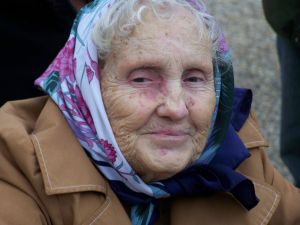In a recent presentation at the annual Consumer Voice conference, nursing home experts Ernest Tosh and Eileen O’Grady unpacked the adverse effects of private equity ownership of nursing homes. The presentation, available in clips on Consumer Voice’s website, explains how private equity firms are increasingly taking over the long-term care industry in the United States. Research suggests their takeover has “increased the short-term mortality of Medicare residents by 10%, resulting in 20,150 more deaths over a twelve-year period.” They use a number of practices, the presenters said, to “extract as much money out of nursing homes as possible,” often resulting in a lower quality of care for residents.
The presentation built on a February 2021 study released by the Private Equity Stakeholder Project, a nonprofit organization where O’Grady is a researcher. Titled “Pulling Back the Veil on Today’s Private Equity Ownership of Nursing Homes,’ the study sought to shed transparency on the largely opaque companies investing in nursing homes. Some of the major players in the industry are Formation Capital, which has “at least 40,000 skilled nursing beds in 22 states”; Assured Healthcare Partners, formerly known as BlueMountain Capital; Regency Integrated Healthcare Services; GI Partners, the owner of Plum Healthcare; Portopiccolo Group; Pinta Capital Partners, the owner of Genesis Healthcare; Fillmore Capital Partners, the owner of Golden LivingCenters; Tryko Partners, owner of Marquis Health Services; and McCarthy Capital, owner of Life Care Services.

The Covid-19 pandemic has brought heightened attention to the role of private equity in the nursing home industry, which suffered catastrophic losses in part due to facilities with inadequate staffing and deficient infection prevention and control practices. Private equity firms have demonstrated increased interest in nursing homes in recent years, with “43 private equity-driven nursing home acquisitions valued at $1.5 billion” in 2020, up from 33 valued at $483 million in 2019. The report cites an August 2020 case study by another advocacy group which found that nursing home chains run by private equity firms in New Jersey “have higher resident infection and death rates and a larger share of Coronavirus cases and deaths compared to their share of residents relative to for-profit, non-profit, and public facilities.”
In their presentation at the Consumer Voice conference, O’Grady and Tosh explained how private equity firms use “sale-leasebacks, management fees, related parties, and dividend recapitalizations” to funnel money out of the nursing homes they own, leading to reduced quality of care for residents. They also unpacked the ways in which nursing homes—those owned by private equity as well as others—use ownership structures that “bilk nursing homes for as much profit as possible and to also protect themselves from liability for negligent care.” Tosh also detailed the ways nursing homes “siphon funds away from nursing home staffing,” a practice that also results in reduced quality of care for residents.
Building on the presenters’ explanation of damaging ownership practices in the nursing home industry, Consumer Voice recommended a few steps the federal government can take to improve conditions for residents. One is a requirement that nursing home owners “provide annual audited cost reports,” which would provide transparency into where they’re spending their money. Another is to establish stronger criteria for nursing home ownership and operation, such that firms known for bad practices aren’t permitted to continue acquiring and running facilities. The final recommendation was for the federal government to “Impose limits on expenditures by owners that do not go towards resident care,” such that ownership cannot continue redirecting money toward themselves that would otherwise be spent on residents.




